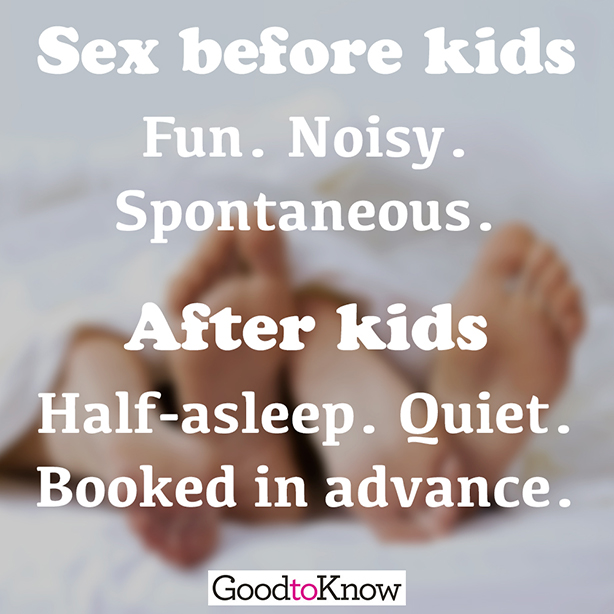Survey reveals more than a quarter of relationships are 'sexless' and having children is one of the biggest passion-killers

More than a quarter of people in relationships have admitted they have had no sex at all or less than ten times in the past year, according to a new survey.
The results revealed a staggering 29 per cent of people describe their relationships as 'sexless' according to the official definition, which is no sex at all in the past year, or fewer than ten times in the past 12 months.
The study also confirms something that most parents already know - having young children is a passion killer.
Just 16 per cent of couples without children reported having sex less than 10 times in the past year, but that figure almost doubled to 30 per cent in couples with an least one child.
The survey, carried out by Gransnet and Mumsnet with Relate, a charity focused on relationships, set out to uncover the truth about sex - or the lack of it - in relationships.
The results reveal age seems to play a big part in decline of people's sex lives, with the number of people saying they are in sexless relationships growing steadily through the age groups.
Almost half (47 per cent) of those aged 60 or older described their relationships as sexless, but people in their twenties also admitted to being involved in sexless relationships, with 18 per cent of those under 30 admitting to hardly ever having sex.
GoodtoKnow Newsletter
Parenting advice, hot topics, best buys and family finance tips delivered straight to your inbox.
So why are couples not getting as much sex as they'd like? Well, young kids seem to have a lot to do with it.

Almost two thirds (68 per cent) of people in their 30s said they don't have as much sex as they like because they are too tired, while 61 per cent said it was because their kids got in the way.
Sadly, 31 per cent of those surveyed said they'd lost their libido since having children.
But it's not all doom and gloom. The statistics showed that as children grow older their parents' sex lives tend to recover.
Those reporting sexless relationships over the past year include 31 per cent of those with at least one child under two, but the figure dropped to 19 per cent of those with children aged 14 to 17.
Relate’s Head of Service Quality and Clinical Practice, Ammanda Major said: 'When it comes to sex, what matters isn’t how often you do it, but how you feel about it. You could be having sex a handful of times a year and be perfectly happy with this – it’s up to you and your partner to define what a healthy sex life looks like for you.
'The reason these statistics are worrying is that they suggest a lot of women are unhappy with the amount of sex they’re having, with many saying it’s causing arguments. When you have young children, finding time for sex can be tricky but there are plenty of ways to be intimate without having full intercourse so don’t put too much pressure on yourself.
'Be sure to talk about how you’re feeling and if things still aren’t working, get in touch with an organisation such as Relate, who can help.'
What do you think? Has your sex life taken a hit after having children, or are you getting more sex than ever before? Tell us about it on our Facebook page.
Words by Saskia Murphy.
Trusted, informative, and empathetic – GoodToKnow is the ultimate online destination for parents. At GoodtoKnow, our mission is 'simple': we're trying to make sense of parenthood. On the site, you'll find everything you need for a happy, healthy family life. Our huge archive of content includes more than 18,000 articles and 1,500 how-to videos. These include expert-backed advice features on parenting, dealing with relationship changes after having a baby, self-care for mums and managing your family finances. We also feature tried-and-tested product reviews and buying recommendations for every stage of family life - from prams and Moses baskets to birthday gifts and top toys.